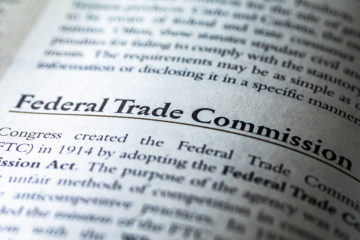The Market Institute President Charles Sauer has a new article in Real Clear Markets on EU Commissioner Thierry Breton’s view on his role as “the enforcer” through the Digital Services Act (DSA). Concerns arise over the Biden Administration’s stance on online censorship, with Lina Khan’s involvement and U.S. government silence.
Sauer writes:
“Thierry Breton, European Union Commissioner for International Markets, recently made some revealing comments to Politico regarding his interpretation of his job: “I am the enforcer…I represent the law, which is the will of the people.” This view characterizing the law as a reflection of the will of the people, as interpreted by politicians and bureaucrats, is at odds with the classical liberal view that the purpose of the law is to protect the people’s natural rights to life, liberty, and property. Under the traditional view the only function of government is to secure and protect those rights; even if doing so conflicts with the will of the people or the of rulers.
Breton was recently in America to make sure American social media companies were prepared for the “the enforcer” to start enforcing the EU’s new Digital Services Act (DSA). DSA embodies the conflict between Breton’s “progressive” view of the law as implementing the will of the people, even if that means violating individual rights, and the classical liberal version.
The DSA empowers Breton and his fellow EU bureaucrats to make social media companies censor any posts that violate laws of any EU member state. This includes French laws banning hate speech, Finnish laws banning blasphemy, and Turkish laws banning “LGBTQ propaganda.” The law requires social media companies to remove any posts containing “misinformation”, which is code for news or opinions that contradict or embarrasses the political class.
Unless social media companies invest time and money towards creating “safe spaces” for users from EU member states, the DSA will restrict the speech of all social media users whether or not they live in the EU. As toxic as online discussions can be, a system that prioritizes free speech is preferable to one in which people are unable to express their opinions because social media companies fear legal punishment.
If Congress or a state legislature were to pass a DSA-type law, it would be struck down by federal courts as violating the First Amendment to the U.S. Constitution. One would expect the U.S. Government to try to persuade our European allies to not subject American social media companies to government censorship.
Disappointingly, instead of trying to convince the EU to reverse course, abandon the DSA, and respect free speech, U.S. government officials have been silent on the law.
This may be because the Biden Administration and its allies actually support online censorship. The Biden Administration has a history of encouraging social media platforms to remove stories and silence those critical of the Administration. In fact, the big guy himself has gotten involved in efforts to silence certain voices online.
The Federal Trade Commission (FTC) has gotten involved by investigating the Twitter files — leaked emails between Twitter and government officials in which the officials “request” Twitter to censor certain topics and users. The FTC is not investigating the government officials who tried to censor American citizens, but rather the reporters who exposed the government’s involvement in silencing its critics.
The U.S. State Department has given taxpayer money to the Global Disinformation Index. The Disinformation Index contains numerous libertarian and conservative news sites including The American Conservative, Newsmax, One American News, and Reason Magazine. However, the Index did not list liberal news sites like MSNBC as sources of misinformation, even though these sites spent hundreds of hours peddling the false news that the Trump campaign and Administration were secretly working with Vladimir Putin.”


